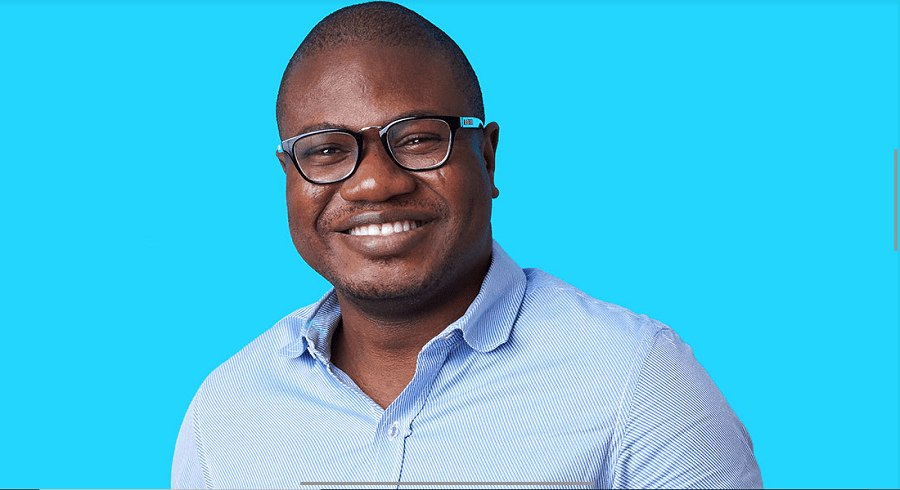Razaq Ahmed, Co-founder and CEO of CowryWise, is a big player in the fintech space. His creation, Cowrywise continues to gain popularity among the emerging generation, who realize that adopting classic investment schemes is probably more beneficial than leaving funds idle in the bank as savings.
Razaq’s story is a captivating one that sees one unfortunate event transform a young man's fate. He was featured by Nairametrics in a column for founders.
Early years
Razaq Ahmed was born in Kano, where his parents lived. They had gotten married in Kano town and this was the same place they had all their children. Razaq and his siblings started their early education there.
Razaq recalled that the community in which he spent the first 14 years of his life had an unusual perception of education. Not many people were particular about tertiary education and becoming an artisan was seen as a norm for the children.
Based on recommendations from an uncle, Razaq started learning generator repairs and maintenance. As a secondary school student at the Army Day secondary school, he would close from school with the rest of his friends, change into casual wears, and resume at the workshop for another kind of learning.
Even though Razaq was intelligent and excelled in his studies, he expected to become a generator mechanic and did not see that much could come out of his education.
Already in SS2 at the age of 14, Razaq was well on his way to becoming a ‘generator man’ as they were called in the community. Even though there was a tertiary institution – Bayero University – in Kano, it was quite a distance from the town where they lived, so the young children hardly came in contact with people in the academic community. Rasaq’s parents had no plans of relocating and the future seemed pretty much predictable. Fate, however, had other plans.
The turning point
At age 14, the family had their life disrupted by the Hausa-Yoruba crisis which rocked the country in 1999. The fracas was traced back to some Hausa men who had been killed in Sango-Ota and their bodies sent home to their families in Kano. This erupted into a major crisis that claimed the lives of many Yorubas and Hausas across the country. As Yoruba residents in a Hausa community, Razaq’s family became victims of targeted attacks.
On one of such attacks where Yoruba residents were being slaughtered by an angry mob, the entire family nearly lost their lives but for the timely sound of the gunshot of men from the Nigerian Army.
“We were all indoors hoping and praying that something magical would happen because we had seen other people being killed, and we were conscious of the fact that it could be our last day. The mob only had sticks and cutlasses. So, immediately we heard the gunshots, we knew help had come. If the Nigerian army had waited a few more minutes before they arrived, I wouldn’t be here today,” Rasaq narrated.
After shooting in the air to disperse the mob, the soldiers took them to the Bukavu barracks where they were camped as Internally Displaced Persons (IDPs) in the Army Day Secondary School – the same school where Rasaq was a student.
This was the turning point in Rasaq’s life. His parents decided then that they could no longer gamble the lives of the entire family in such a crisis. The 1999 crisis was the third major crisis in which the family survived unscathed – and it did not seem like they would be lucky enough to survive a fourth. They relocated to their hometown in Ogbomoso to start life from the scratch.
Career
The job offer came before the National Youth Service year, so Razaq served out the year at Meristem Securities as a Research Analyst. This marked his introduction into Investment banking, as he was saddled with responsibilities which helped him build capacity. When Saheed Bashiru moved to another unit, Razaq became Head of the research unit.
In 2010, Razaq left Meristem for Vetiva Capital Management, where he spent about four months as a Research analyst.
He had a short break from investment banking in December 2010, when he resumed with Shell Petroleum Development Company as Business Economist. This break affected his CFA programme which he had started at the time, delaying his completion till 2012. While working at the SPDC, he also took a professional course to become an Energy Risk Professional (ERP).
The birth of Cowrywise
As the world got ‘techified’, there was a need to merge technology into the classic investment arrangement. Also, at about the same time, there were indicators showing a larger pool of ordinary individuals interested in being a part of the arrangement.
“The idea of cowrywise came in when we had a lot of people come asking ‘how do I invest 1000 naira and small amounts like 50,000 naira. After much deliberations, we decided that the best way to scale was to open it up to the public and that was what gave birth to Cowrywise.”
To eliminate bumps from the process, Cowrywise introduced the automated savings option that allows people to use a saving schedule and invest as easily as they spend.
Meristem Securities was introduced into the arrangement as a check, to ensure that the savings are actually going into risk-free instruments. The idea, Razaq explains, is to let savings become a lifestyle, you save while living your normal life.


